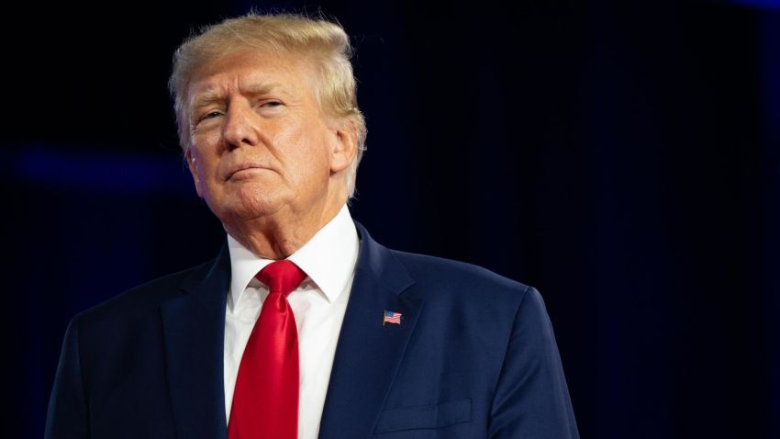In the early hours of Wednesday, former President Donald Trump took the stage to declare victory in the 2024 presidential election, marking a historic return to the White House after his 2020 defeat. Trump’s win has sparked reactions across major media networks, with even CNN anchors acknowledging it as an extraordinary political comeback.
CNN’s Jake Tapper and Anderson Cooper discussed Trump’s unexpected resurgence during their live coverage, with Tapper calling it an “unparalleled” moment in American politics. “It’s hard to think of a political comeback that is actually more significant than this one. I’m tempted to say Richard Nixon, but that really falls short of what Donald Trump has achieved,” Tapper remarked. This statement highlighted the sheer magnitude of Trump’s journey back to the presidency amid years of legal battles, intense scrutiny, and a fiercely competitive election season.
Anderson Cooper joined Tapper in recognizing the victory as a landmark in modern politics. Their commentary illustrated how Trump’s win resonated even with networks that had been largely critical of his previous administration.
A video of Tapper and Cooper acknowledging Trump’s achievement quickly went viral on social media, with supporters highlighting CNN’s reaction as a validation of the election’s significance.
While CNN’s anchors admitted the victory was historic, reactions varied widely across other networks. On MSNBC, host Joy Reid expressed her disappointment and alarm over Trump’s return, criticizing voters who supported his campaign.
“You just think about the last two weeks and the things that Donald Trump has said on live TV that people could hear. He talked about mass deportations, for example,” Reid noted, questioning how these positions still garnered Trump significant voter support. She continued, “If all of that gets you half of the votes, what does it tell you?” Reid’s frustration mirrored that of many Democratic commentators grappling with Trump’s ability to resonate with a broad voter base despite his polarizing stances.
JUST IN: MSNBC’s Joy Reid is looking increasingly more concerned, appears to suggest that half the country is sick.
“You just think about just the last two weeks and the things that Trump has said…”
“Mass deportation and a violent, a start, violent start to his dictatorship… pic.twitter.com/3JHT8PlRIA
— Collin Rugg (@CollinRugg) November 6, 2024
Reid’s comments circulated widely, with supporters and critics alike discussing her alarm over Trump’s return to office.
In the wake of Trump’s victory, political analysts across media outlets have begun dissecting the factors that led to this outcome. The Drudge Report, a traditionally left-leaning news aggregator, shared an article from The Associated Press analyzing key shifts in political alliances and voter priorities that may have contributed to Trump’s win.
The AP article highlighted Trump’s appeal to voters concerned with economic issues, particularly those frustrated by inflation and high costs of living under the current administration. “Early data suggests that Republican Donald Trump may benefit from some of the shifts more than Democrat Kamala Harris,” the article noted, suggesting that Trump’s messaging on the economy, national security, and immigration struck a chord with a large swath of Americans.
CNN’s Tapper echoed similar sentiments, pointing out that Trump had successfully tapped into widespread economic frustrations. “This was a campaign focused on real concerns that people are feeling every day, from inflation to security,” Tapper said, emphasizing how Trump’s platform addressed these issues in a way that resonated across diverse demographics.
Analysts have also noted the Republican Party’s success in appealing to a broader base, particularly among working-class voters. Trump’s campaign strategy, which emphasized unity around economic recovery and stronger borders, helped bridge the gap between traditional Republican voters and those swayed by economic and safety concerns.
With Trump set to return to the White House, many are speculating about the future of American politics and the challenges awaiting both parties. Trump’s team has emphasized a message of unity, urging Americans on both sides of the aisle to focus on common goals for the country’s prosperity and security. Political strategists suggest that this call for unity may be crucial as Trump faces a divided Congress and an array of domestic issues.
CNN commentators also pointed to the likely policy shifts as Trump prepares to take office. Cooper noted that Trump’s administration would likely prioritize economic reforms, immigration policies, and a shift in foreign policy toward a more nationalistic stance, which aligns with the preferences of many of his voters.
At the same time, Democratic leaders are assessing the state of their party, particularly in the face of shifting voter loyalty in traditionally Democratic regions. Trump’s success has underscored a need for the Democratic Party to reconsider its strategy in addressing economic concerns that resonate deeply with middle-class voters. Some Democrats have hinted that a renewed focus on core domestic issues, such as job growth and reducing inflation, may be necessary to win back voters in key swing states.
As the dust settles on this remarkable election, it’s clear that Trump’s victory has fundamentally reshaped the political landscape. Both supporters and critics recognize it as a significant political comeback, one that underscores the complexities of American voter priorities in a time of economic uncertainty and social division.
Whether Trump can unite a divided nation remains to be seen, but as he prepares to take office, the country awaits a new chapter that will undoubtedly bring shifts to both policy and politics in Washington. CNN’s Tapper perhaps summed up the sentiment best when he said, “Love him or hate him, you can’t deny the significance of what we’re witnessing tonight.”



